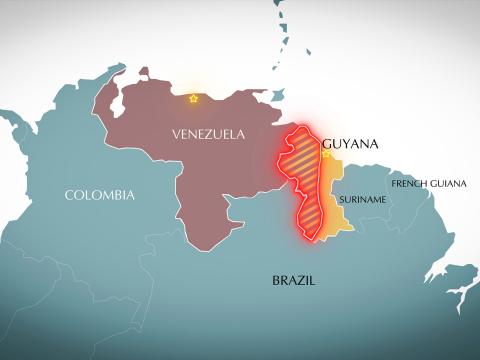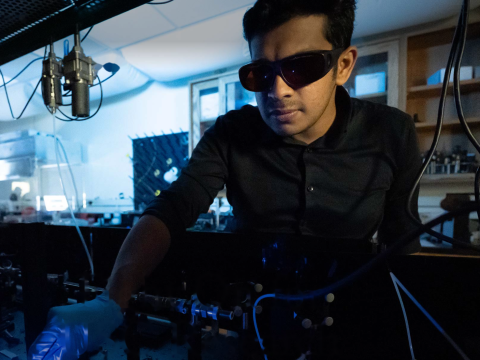Russia Strengthening Focus on AI Technologies
Russia is focusing more and more on artificial intelligence, machine learning and autonomous systems, and this effort is like none seen before, according to an expert. The country is calling for an increased response from its academia, industry and military to develop these technologies, said Samuel Bendett, associate research analyst, Center for Naval Analyses.
Russian artificial intelligence (AI) technologies are only starting to mature. And while the country does not have a fully autonomous system ready to be used in combat, the message is clear: the country is marshaling resources to dominate in these fields, noted Bendett, who presented his views at the Navy League’s Sea-Air-Space global maritime exposition at National Harbor, Maryland, on April 10. He recounted how Putin has said that whoever masters AI will rule the world. “This gives us good reason to have concern,” Bendett said.
Carried out under auspices of the Ministry of Defence (MOD), Russia is funding projects in AI targeting image processing; facial, voice and data recognition; and speech control, as well as the ability to harness information from radar and satellites and information support in the weapons life cycle.
From hosting forums aimed at progressing technical information and conducting robotics design competitions, to calling for the defense and civilian experts to join forces, the country is organizing for AI, machine learning and autonomy like never before, Bendett said. In addition, the country’s DARPA-like agency, Foundation of Advanced Studies (FAS), created in 2012, is playing an increasingly important role, according to the analyst. In addition, the Russian MOD announced that it would build a technology city near the Black Sea.
What this focus means for actual development of these technologies—given Russia’s past reputation for bureaucratic inefficiencies—is a lifting of confidence by technology developers about the MOD’s level of commitment in putting theoretical concepts into practical applications, Bendett said. After that comes the formulation of concept of operations (con ops) and tactics, techniques and procedures (TTPs) to use warfighter AI, machine learning and autonomy technologies, he noted.
In particular, Bendett expects Russia to use these capabilities to help expand data analyses and saturate the information space to confuse opponents, as well as to harness radar and satellite data and images. He predicted that the biggest breakthroughs by Russia could be based on machine learning and electronic warfare technologies. Already, in Ukraine, the Russians are collecting data from NATO assets, including aircraft, to apply AI elements to electronic warfare. The Russian military also is using some AI-related applications, including an unmanned underwater vehicle in Syria to search for mines and an unmanned ground vehicle as a test bed for AI and swarm technologies. It plans to outfit its MIG-41 fighter jets with AI technology.
Furthermore, Bendett noted that Russia’s stance on whether or not it is ethical to use AI is “buying them time,” while the country develops a system of con ops. Russian authorities have stated publicly that they don’t really know how these technologies will work in battle, and they don’t want to politicize use of AI in combat. “They don’t want to separate AI into good or bad,” he said. “For them it is not about ethics. It is about what they can actually build.”
Lastly, Bendett cautioned that Putin’s message about AI dominance doesn’t occur in a vacuum. The message to the world comes after “intense deliberations and intense experimentation,” he said. As such, it is the essential that the United States not be surprised as far as Russia’s capabilities in AI, “as we were in Syria and the Ukraine” with electronic warfare. Bendett warned.





Comment
Russian and Soviet educated
Russian and Soviet educated engineers are very smart when it comes to AI. You find Russians, Ukrainians and others working on the most challenging AI projects all over the world.
Comments